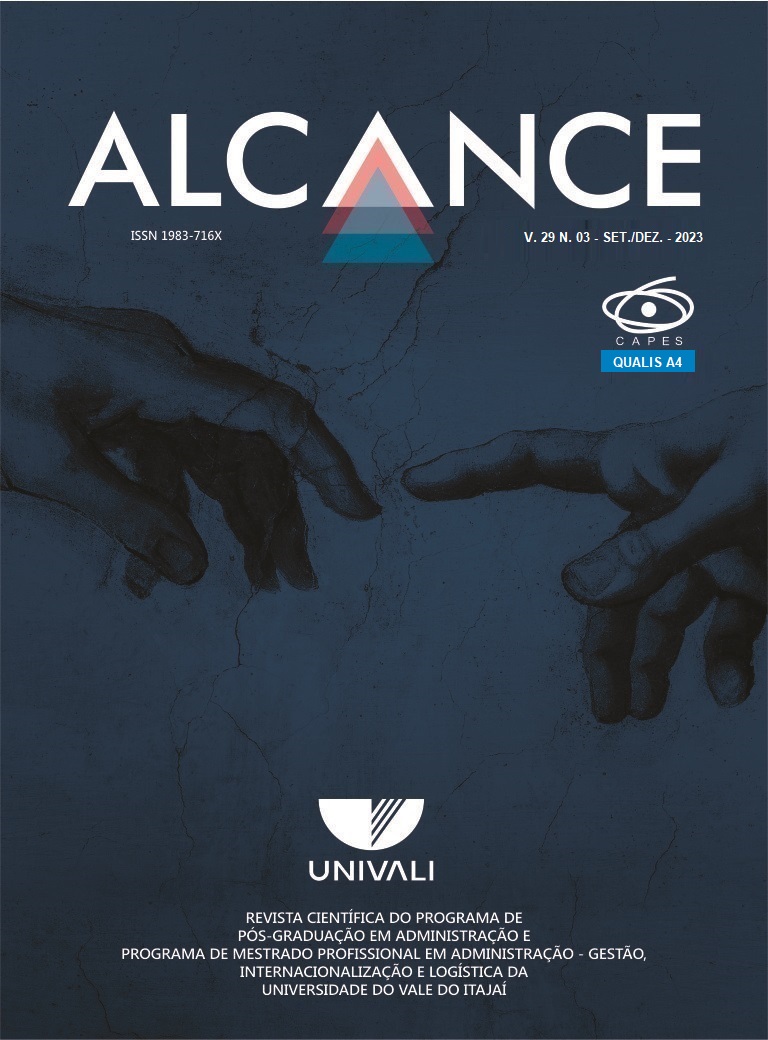
Objective. The aim of this essay is to explore some of the symbolic configurations invested on startups. Specifically, we seek to (i) rescue the fundamental bases of Weberian perspectives and socio-historical conceptions about capitalism and entrepreneurship in order to metaphorically (ii) analyze the pursuit of a particular ethos guided by symbolic markers about the world of startups, taking as contextual reference the current discourses of the redemptive entrepreneurship current that supposedly pair with some of Weber's observations.
Design/method/perspective. The Weberian approach opens our eyes to new possibilities for understanding startups, especially by supposing that the discussions held about these organizations in these disciplines seem to be crossed by the construction of prophetic and messianic narratives around the social role of startups and the lives of CEOs, this being a perspective little explored by academia.
Results. We highlight that (i) not everything is as perfect as it seems to be in the world of startups, even though this current advocates actions that try to reflect more of the divine goodness and the creation of an atmosphere of constant celebration, victorious practices, and a transforming fraternity; (ii) the concepts of the current linked to redemptive entrepreneurship are close to Weberian observations; and, finally, (iii) the suspicion that other symbolic configurations may be incorporated in the discourses of the agents integrating innovation ecosystems. Originalidade/valor. This essay lies in the fact that we have managed to think of startups as a social phenomenon from the Weberian approach.




Bertero, C. O. (2014). Documentos e debates: Réplica 2 - O Que é um Ensaio Teórico? Réplica a Francis Kanashiro Meneghetti. Revista de Administração Contemporânea, 15(2). DOI: 10.1590/S1415-65552011000200012.
Boltanski, L., & Chiapello, È. (2009). O novo espírito do capitalismo. Martins Fontes.
Castells, M. (2003). A galáxia da internet: reflexões sobre a internet, os negócios e a sociedade. Rio de Janeiro: Zahar.
Faria, L. P. S. (2020). Faça acontecer: a política da busca por autorrealização em empresas startup no Brasil e no Reino Unido. Etnográfica. Revista do Centro em Rede de Investigação em Antropologia, 24(3). DOI: https://doi.org/10.4000/etnografica.7854.
Henrekson, M., & Johansson, D. (2010). Gazelles as job creators: A survey and interpretation of the evidence. Small Business Economics, 35(2), 227–244. DOI: https://doi.org/10.1007/s11187-009-9172-z.
Jung, C. G. (2002). O homem e seus símbolos. Rio de Janeiro: Editora Nova Fronteira.
Lima, E., & Ferreira, V. S. (2022). Ao som de Belchior: uma experiência auditiva-musical sobre o mundo das startups. Revista Brasileira de Estudos Organizacionais, 9(1), 72–98. DOI: https://doi.org/10.21583/2447-4851.rbeo.2022.v9n1.482.
Maia, M. M. (2019). COMO AS START-UPS CRESCEM? Performances e discursos de empreendedores à procura de capital. Revista Brasileira de Ciências Sociais, 34(99). DOI: https://doi.org/10.1590/349919/2019.
Martes, A. C. B. (2010). Weber e Schumpeter: a ação econômica do empreendedor. Revista de Economia Política, 30(2). DOI: 10.1590/S0101-31572010000200005.
Mazzucato, M. (2014). O Estado empreendedor: Desmascarando o mito do setor público vs. setor privado. Westminster: Portfolio Penguin.
Mazzucato, M. (2020). O valor de tudo: Produção e apropriação na economia global. Westminster: Portfolio Penguin.
Moore, J. F. (1993). Predators and Prey: A New Ecology of Competition. Harvard Business Review, 71(3).
Mundo Rh. (2021). CNN Séries Originais estreia a série “Unicórnios do Brasil”. Https://Www.Mundorh.Com.Br/Cnn-Series-Originais-Estreia-a-Serie-Unicornios-Do-Brasil/.
Pires, A. S. (2021). As novas configurações espaciais do empreendedorismo tecnológico e as experiências de trabalho no pólo de tecnologia de São Carlos-SP. Revista Brasileira de Ciencias Sociais, 36(106). DOI: 10.1590/3610605/2021.
Praxis. (2017). Full of promise: a vision for redemptive entrepreneurship. https://journal.praxislabs.org/full-of-promise-534310dca752.
Santiago, E. G. (2009). Vertentes teóricas sobre empreendedorismo em Schumpeter, Weber e McClelland: novas referências para a sociologia do trabalho. Revista de Ciências Sociais, 40(2).
Sennett, R. (2019). A cultura do novo capitalismo (7a ed., Vol. 1). Record.
Shane, S. (2009). Why encouraging more people to become entrepreneurs is bad public policy. Small Bus Econ, 1(33). DOI: 10.1007/s11187-009-9215-5.
Weber, M. (1999). Economia e sociedade: fundamentos da sociologia compreensiva. Brasília: Editora Universidade de Brasília.
Weber, M. (2001). Metodologia das ciências sociais. São Paulo: Cortez.
Weber, M. (2008). Ensaios de sociologia. Rio de Janeiro: LTC.
Weber, M. (2011). Ciência e política: duas vocações (18a ed.). São Paulo: Cultrix.
Weber, M. (2013). A ética protestante e o “espírito” do capitalismo. São Paulo: Martin Claret.
Williams, N., & Williams, C. C. (2014). Beyond necessity versus opportunity entrepreneurship: Some lessons from English deprived urban neighbourhoods. International Entrepreneurship and Management Journal, 10(1), 23–40. DOI: https://doi.org/10.1007/s11365-011-0190-3.




Copyright (c) 2023 Revista Alcance
This work is licensed under a Creative Commons Attribution 4.0 International License.






Revista Alcance is a Brazilian free access journal, published every four months, linked to the Graduate Program in Administration and the Professional Master’s degree in Administration, Internationalization and Logistics Program of the University of Vale do Itajaí – Univali. We seek to publish theoretical-empirical and technological articles in the areas of Business Administration. Different theoretical and methodological perspectives are welcome, as long as they are consistent with and relevant to the development of the area.

